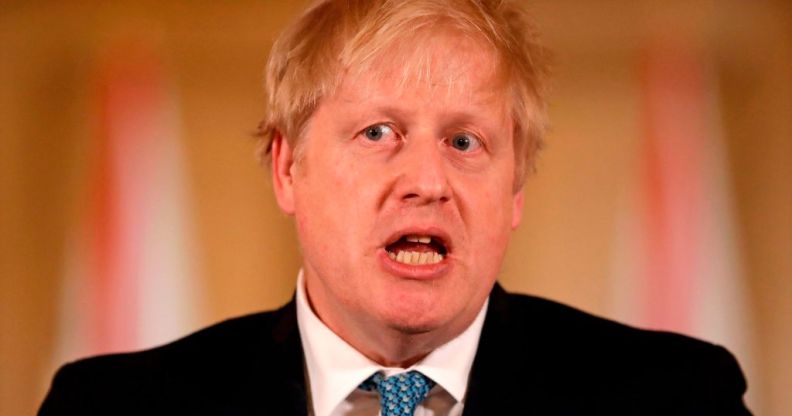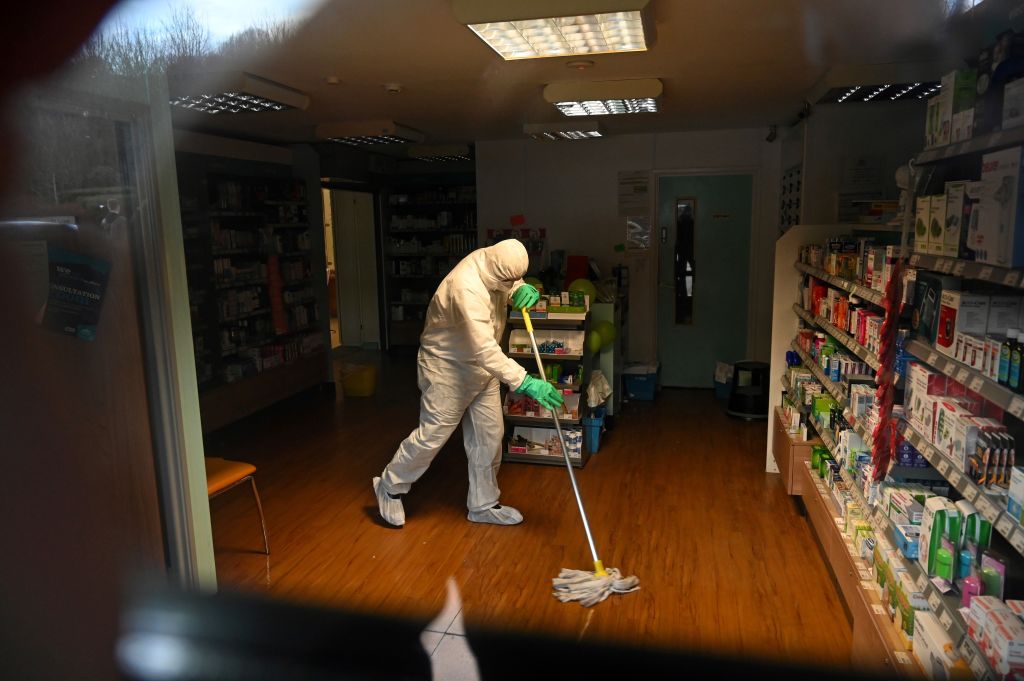Do HIV-positive people need to go into strict self-isolation due to coronavirus? The experts explain

Britain’s Prime Minister Boris Johnson called on people with weakened immune systems to stay home (MATT DUNHAM/POOL/AFP via Getty Images)
Experts have clarified whether HIV-positive people need to go into strict social isolation due to coronavirus, after people with “weakened immune systems” were urged to do so.
On Monday, Public Health England put out guidance calling on over-70s and people with weakened immune systems, including those with HIV, to strictly socially distance themselves from others.
There has been little clarity on what the guidance means about the actual risk to people living with HIV – but those in the sector are doing their best to explain.
People on effective treatment for HIV may not face a high risk or coronavirus.
The British HIV Association said: “While there is no evidence so far to determine whether people with HIV are at greater risk of COVID-19 acquisition or severe disease, the new advice reflects the lack of evidence by classifying all people with HIV as vulnerable.
“People on HIV treatment with a good CD4 and undetectable viral load are not usually considered to have a ‘weakened immune system’ as specified in the PHE guidance.”
Dr Michael Brady of Terrence Higgins Trust, the national adviser for LGBT health, also clarified the advice for people living with HIV in a blog post.

A worker in protective clothing, including face mask and gloves, is pictured cleaning the floor of a pharmacy (Photo by GLYN KIRK/AFP via Getty Images)
He wrote: “These are measures that we all need to take – but it is especially important for older people, those with some long-term medical conditions and those with weakened immune systems.
“This doesn’t mean that all people with HIV are considered at increased risk. Those on HIV treatment with a good CD4 count and an undetectable viral load are not considered to have weakened immune systems.
“I’d advise that a ‘good CD4 count’ means anything over 350. If your CD4 count is less than 350, if you’re not on treatment or if you have a detectable viral load, then it’s particularly important that you follow the guidance on social distancing.”
Brady noted that CD4 counts are no longer routinely tested, but that “effective treatment means that the vast majority of people living with HIV have an undetectable viral and a good CD4 count”.
He added: “As long as your viral load remains undetectable, your CD4 count will be as good.”
Don’t stockpile drugs and avoid contacting clinics ‘unless necessary’.
Dr Brady also warned that there will be less availability at HIV clinics during the crisis.
He said: “If you’re well and have an undetectable viral load, we’ll do blood tests less frequently but always ensure that you have enough medication (which, at the end of the day, is the most important thing).
“There’s no need to stockpile medication – in fact this could put unnecessary strain on the system. We have no concerns about the supply of medication, so just ensure that you always have at least a month’s worth of medication at home. Your clinic will be in touch with you about what is happening.
“Try to avoid contacting the clinic unless really necessary as things are really busy at the moment – but if you need to contact your clinic, be patient and we will sort out your problem. If you need to be seen then we will see you.”

